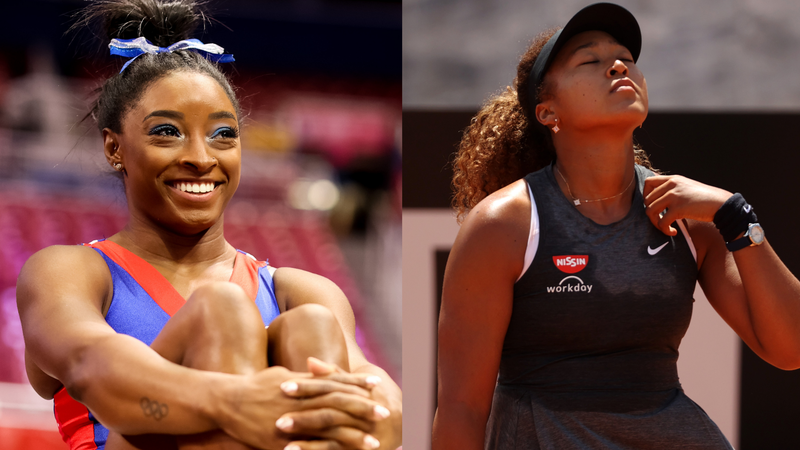
Recently, there's been a very prominent wave of athletes prioritizing their mental health over their high-profile careers and pivotal moments like the Olympics and championships.
Listen to your favorite music now on Audacy and check out all of our new exclusive stations
Among those leading the charge in removing the stigma associated with mental health are Naomi Osaka, Simone Biles, Liz Cambage, and Raven Saunders. In a recent feature with NBC News, Saunders explained her journey with her public mental health struggles. In 2016, she placed fifth in the Rio Olympics for women's shot put. She returned home, but her victory was short-lived. The year after placing 10th in the Athletics World Championships, she admits to having a breakdown.
Career aside, "navigating life as a Black, queer woman only added to the stress and she entered a period of depression, and suicide ideation." She detailed, "I would base my self worth and how good I was as a person on how I was doing in track. When I ended up not having a good World Championship meet, it sent me further into that hole. I knew I was drained, but I still tried to push through."
Saunders is just one of many who have openly spoken on their mental health journey, especially as an athelete. Osaka stepped down from both the French Open and Wimbledon because her mental health was more important. The rare move was highly regarded among her peers, spectators and tennis legend, Billie Jean King. Cambage felt that the Olympic bubble would induce a panic attack and chose to withdraw. Biles discusses therapy and her use of anxiety medication. Simone Manuel, Olympic swimmer, took a break after being diagnosed with overtraining syndrome.
In light of these events, LeʼRoy Reese, professor of psychiatry and behavioral science at the Morehouse School of Medicine, expressed, “Athletes are increasingly taking ownership of their personal narrative and making their own choices about sharing that. There is now a sense of agency among professional athletes that we have not seen before with regard to their voices.”
Reese continued, "There has been a benign neglect too often of professional athletes’ physical and mental well-being. [Leagues] don’t think about how the stress of performing at such a high level impacts an athlete’s quality of life." However, professionals feel that all these collective instances will spark a "snowball effect" and we will definitely see a rise in athletes be more open about mental health and wellness.
Audacy's I’m Listening initiative aims to encourage those who are dealing with mental health issues to understand they are not alone. If you or anyone you know is struggling with depression or anxiety, know that someone is always there. Additionally, the National Suicide Prevention Lifeline is available 24 hours a day, 7 days a week at 1-800-273-8255.
